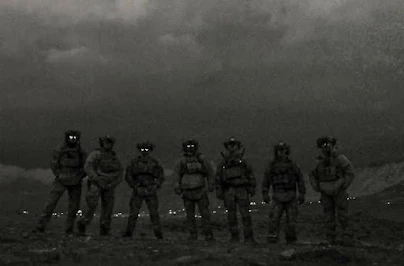.jpeg)
Psychological warfare and guerrilla tactics are powerful tools in modern conflicts, used to gain an advantage and control without relying on traditional military strength. Research and historical evidence show that psychological superiority can be decisive in achieving victory.
Psychological Warfare
Psychological warfare involves operations targeting the enemy's mind and morale to weaken their confidence and resolve. Unlike conventional warfare, it focuses on influencing thoughts, emotions, and beliefs.
Guerrilla Warfare Strategy
Guerrilla warfare is an unconventional tactic used by smaller, less-equipped groups to combat larger, better-equipped forces. It relies on flexibility, speed, and surprise, executing swift, unexpected attacks and then retreating before the enemy can effectively respond.
.jpeg)
Key Elements of Psychological Warfare in Guerrilla Strategy
1. Surprise and Flexibility
Surprise is the core of guerrilla strategy. By attacking when the enemy is unprepared, smaller forces can create chaos and confusion. Flexibility allows these forces to quickly adapt to changing situations and avoid direct confrontations that could be detrimental.
2. Effective Communication and Propaganda
Effective communication and the use of propaganda significantly impact enemy morale and public perception. By spreading misinformation and amplifying minor successes, smaller forces can build a stronger image and boost their own morale while undermining the enemy's.
3. Alliances and Local Support
Alliances and support from the local population can be crucial for guerrilla success. With local support, fighters gain access to resources, information, and safe havens, enhancing their resilience and operational longevity.
4. Psychological Impact and Exhaustion
Tactics that undermine confidence and cause psychological exhaustion in the enemy are highly effective. Continuous, unexpected attacks, misinformation, and actions that increase the cost of war for the enemy can erode their will to fight.
Modern Applications of Psychological and Guerrilla Warfare
In contemporary conflicts, these strategies are evident in numerous global struggles. Small armed groups often use guerrilla tactics and psychological warfare to achieve their objectives against larger, conventional forces. These strategies are crucial in altering the course of war in civil conflicts and asymmetric warfare.
.jpeg)
